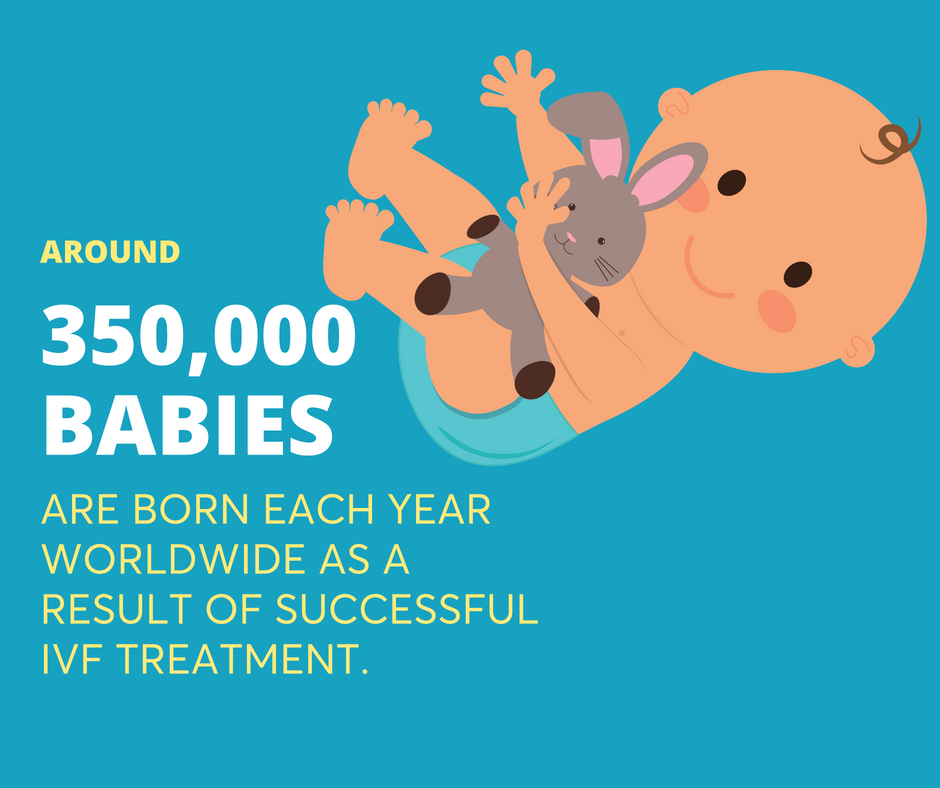Around 350,000 babies are born each year worldwide as a result of successful in-vitro fertilization treatment. For many parents, the procedure represents a seemingly miraculous, life-changing method of bringing the joys of parenthood to those who had nearly given up hope.
But IVF remains an evolving technology, and comes with a complex set of variables that are worth considering carefully before electing to undergo the treatment. Due to the IVF cost in Thailand, not to mention the potential health concerns, it is generally considered to be a viable option only in cases where standard attempts at achieving pregnancy have already failed or are likely to fail. To review the commonly recommended methods of maximizing the likelihood of pregnancy through natural means, see our previous article on the subject: How to Get Pregnant Fast: Expert Advice for Women.

If a year of following the standard recommendations have not worked for you, it may be worth weighing the IVF cost in Thailand against the potential benefits. A more complete description of these will surely be provided by your specialized gynecologist, but a general outline of factors to consider is as follows:
-
The price. Expect to pay anywhere from $7,500 to $11,000 (THB 250,000 - THB 370,000) for the procedure itself. This is no trivial expense, but it may represent a savings of up to 50% off of a similar procedure being performed in more expensive countries such as the United States. Naturally, pregnancy itself brings with it another significant expense, which is why it strongly recommended to have comprehensive health insurance in place early in advance so that your pregnancy is covered and your child can be covered from birth.
-
The odds. Success with IVF is by no means guaranteed. For women under 35, the rate of live birth as a result of the procedure remains around 42% when her own eggs are used. For women aged 35-37, that drops to about 33%. At age 38-40, the success rate is just 22%, and continues falling quickly every year thereafter. The health and habits of the patient are also relevant to her chances of finding success through IVF, but many people are nevertheless left disappointed even if they do everything right.
-
The risk factors. The IVF cost in Thailand (and elsewhere) is more than just monetary. Due to the way the procedure is designed, painful conditions such as ovarian hyperstimulation syndrome occur in at least 10% of patients, sometimes more depending on the methods used. Moreover, multiple births are a real possibility in IVF, leading to potential complications during pregnancy. Even when the mother becomes pregnant with a single child, the rate of birth defects through IVF is higher than through natural fertilization.
-
The potential. Despite the difficulties and risks, many aspiring mothers choose to undergo IVF because of the enormous potential it offers. IVF represents the only possibility for ordinary same-sex couples to experience pregnancy and parenthood, and it may also be the only realistic option for unattached women as well as couples that have tried and failed to conceive through other means.
Proceeding with IVF requires considerable preparation – mental, physical, and medical. Thailand is home to many hospitals that are highly experienced and well-equipped for embarking on such a complex procedure as IVF. We at Luma recommend seeking expert advice before deciding whether or not to undergo IVF. That process begins with finding the right doctor to talk to, which is why we have put together a helpful guide on the topic of How to Find the Best International Hospitals in Thailand.
.png)

.png?width=960&name=IVF_blogvisual2%20(5).png)